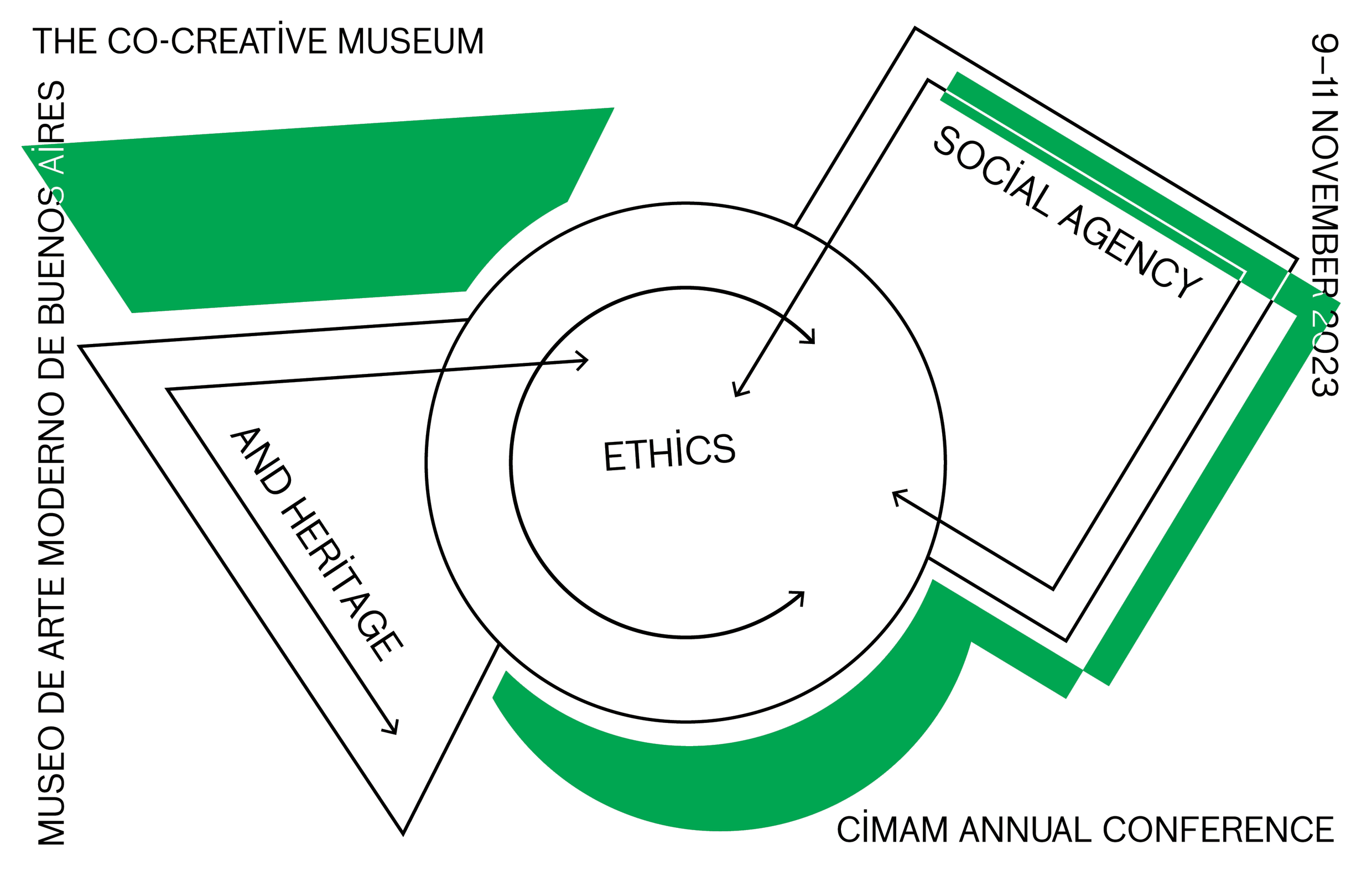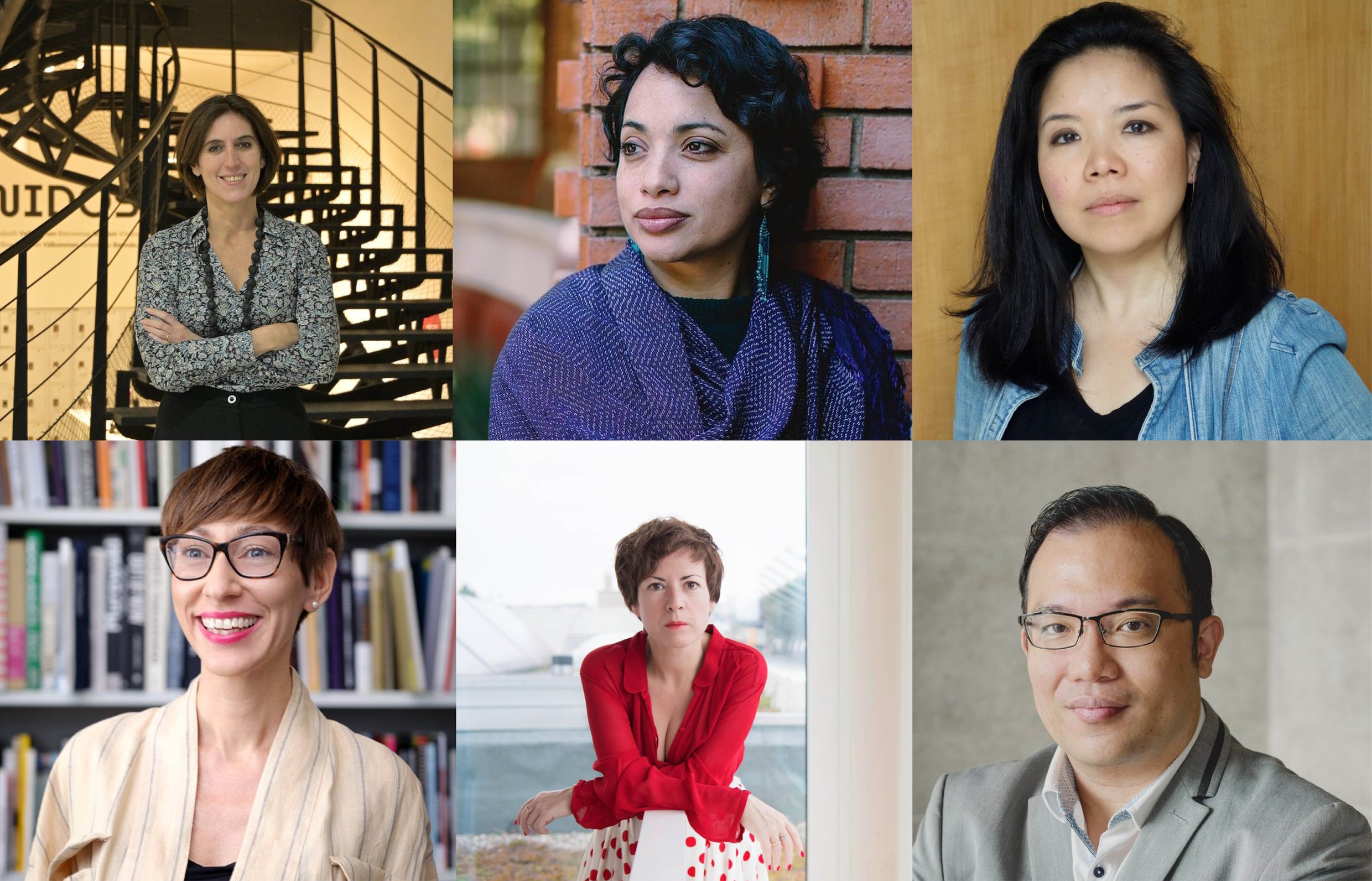"The Co-Creative Museum: Social Agency, Ethics, and Heritage"

CIMAM Annual Conference 2023
Museo Moderno de Buenos Aires, Argentina
November 9–11, 2023
What is a co-creative museum? How can a museum strengthen mutuality among its component communities? When is it legitimate to speak about the collective creation of programmes in an institutional context? How can the construction and care of patrimony and heritage find a correlation in the relationships the museum fosters with its diverse communities? For the first time in CIMAM’s history, the Conference will focus on the social role of the art museum, a function that lies at the heart of museum practices in Latin America, where many museums vigorously respond to economic contexts characterized by inequality and vulnerability. Speakers from the 5 continents will address the institutional possibilities developed worldwide to position the arts as a vehicle for the development of effective micropolitics towards social transformation, community-building and the promotion of social justice.
Day 1: Thursday, November 9
How Can Museums Embrace their Social Responsibility? A Question from the Americas
How can museums become effective sites for playing out, debating and tackling the issues raised by societies? How can museums be affirmed as brave spaces for freedom of expression, the development of honest inquiry and the expansion of creative imaginations as they occupy their roles as producers of knowledge in dialogue with artists and civil societies? On this first day of the Conference, we look forward to setting forth holistic conceptions around how the museum can effectively make communities’ concerns its own in order to effectively respond and accompany their searches by shouldering social, cultural and educational – and decolonial! – responsibilities.
- Elvira Espejo Ayca, Artist and Director, Museo Nacional de Etnografía y Folklore, La Paz
- Pablo Lafuente, Artistic Director, Museu de Arte Moderna do Rio de Janeiro, Rio de Janeiro
- Simon Njami, Independent Curator, Paris
- Nicolás Testoni, Director, Ferrowhite—museo taller, Bahía Blanca
- Coco Fusco, Artist and Professor, Cooper Union, Brooklyn
Day 2: Friday, November 10
The Role of Museums in Communities, Education, and Accessibility
The museum can be an active agent in understanding art partly as a vehicle for the construction of knowledge. What is the role of the arts and artists in education as a whole, and what is the role of education as endorsed by the museum? How can the museum become a catalyst for new notions of education? How can museums foster co-creative relationships with and among artists and the local communities of situated contexts? Over the course of Day 2, we access the experiences and philosophies of specialists in education, accessibility and mental health as they weave the arts into their own practices of education, care and healing.
- Luis Camnitzer, Artist, Great Neck, NY
- Teresa Cisneros, Senior Practice Manager, Culture Equity Diversity Inclusion, Wellcome Trust, London
- Marie Hélène Pereira, Curatorial Advisor, RAW Material Company, Dakar, Senior Curator (performative practices), Haus der Kulturen der Welt, Berlin
- Ana Gallardo, Artist, Mexico City
Day 3: Saturday, November 11
How Can Museums Collect, Preserve and Protect Cultural Heritage While Creating New Communities?
Day 3 is intended as an organic continuation of the debates and discussions begun during the second day of the Conference. Museums have a responsibility to preserve but also to honour situated histories, materials and archives that embody past heritages and steer us towards different futures. Museums are learning not only to preserve, but to become and remain respectful to the premises and values of the communities which such materials belong to. Can we implement different methodologies to question canonical and normative processes and so disrupt colonial legacies? Can we escape the logic of capitalism in our collections? Can we challenge our acquisition criteria and our conservation policies to accommodate the well-being of our planet? Can restitution be seen as a form of necessary healing and an opportunity to initiate a different dialogue with the past? What are the future mechanisms to implement the museum’s response in the event of wars or emergencies? Naming problems and proposing different approaches and methods has a generative effect by enabling us to collectively reflect on a museum capable of learning and transmitting how heritage is always related to an idea of the social situated not only in the past but in the future.
- Yto Barrada, Artist, Brooklyn/Tangier
- Marian Pastor Roces, Curator and Principal Partner, TAOINC, Metropolitan Manila
- A Dialogue between María Belén Correa, Director and Founder, Archivo de la Memoria Trans Argentina (Argentinian Trans Memory Archive), Hanover, and Sidhi Vhisatya, Curator, Queer Indonesia Archive, Jimbaran, Bali
- Luma Hamdan, Director, Darat al Funun‚The Khalid Shoman Foundation, Amman
- Claudia Zaldívar, Director, Museo de la Solidaridad Salvador Allende, Santiago de Chile
2023 Contents Committee

The contents of the 2023 Annual Conference have been thought and designed by the Contents Committee consisting of CIMAM Board members:
- Victoria Noorthoorn, (Chair of the Contents Committee), Director, Museo de Arte Moderno de Buenos Aires
- Amanda de la Garza, Director, Museo Universitario de Arte Contemporáneo (MUAC), Mexico City
- Clara M. Kim, Chief Curator & Director of Curatorial Affairs, MOCA, Los Angeles
- Malgorzata Ludwisiak, Artistic Director, The Museum of Modern Art in Warsaw
- Chus Martínez, Director, Art Gender Nature Institute HGK, Basel
- Yu Jin Seng, Deputy Director (Curatorial & Research), National Gallery Singapore